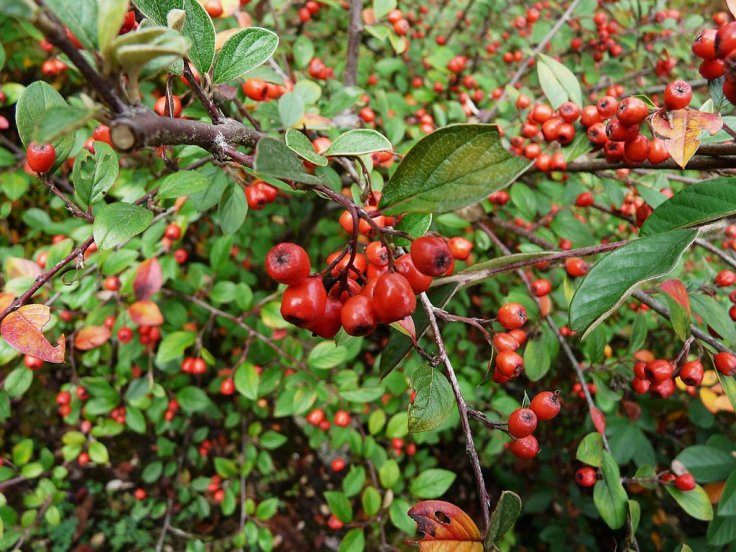Along with the world population, environmental issues are also growing at a rocket speed. But despite efforts from the environmentalists and experts, we are hardly noticing any difference. But scientists at the Royal Horticultural Society (RHS) in the UK may have found a unique plant that could ease environmental problems like pollution.
Horticultural experts said that they found a "super-plant" that can help to absorb pollution on busy roads. The RHS scientists have been analyzing the hedges for their efficacy in terms of soaking up air pollution compared to different types of shrubs.
The recent findings have revealed the benefits of gardens and green spaces to control the issues which are damaging the environment.
The Super Plant

According to the study researchers, the hairy-leaved Cotoneaster franchetii is at least 20 percent more effective at absorbing pollution on heavy traffic roads compared to shrubs.
Dr. Tijana Blanusa, the lead researcher of the study said that on major city roads with heavy traffic, the team found that the species with "more complex, denser canopies and rough and hairy leaves" were the most effective to absorb the air pollution.
"We know that in just seven days a one-meter length of the well-managed dense hedge will mop up the same amount of pollution that a car emits over a 500-mile drive," said Dr. Blanusa.
According to her, the cotoneaster would be ideal to plant along the roads with maximum traffic that are pollution hot spots. However, in other areas, a mix of species would be recommended that would help to ease environmental problems like floods and heatwaves.
After conducting a survey involving 2,056 people for the RHS, it was also found that around 33 percent of people were affected by the air pollution, while just six percent are taking active steps in their gardens to reduce the effect.
The survey also revealed that 86 percent said they cared about environmental problems, while 78 percent worried about issues related to climate change. RHS is now hoping to encourage more people to think about the betterment of the environment in their garden.
As reported by The Guardian, Prof Alistair Griffiths, RHS director of science and collections said that the UK's leading gardening charity has been "continually identifying new 'super plants' with unique qualities which when combined with other vegetation provide enhanced benefits while providing much-needed habitats for wildlife".
"We've found, for example, that ivy wall cover excels at cooling buildings, and hawthorn and privet help ease intense summer rainfalls and reduce localized flooding," he added.
According to Griffiths, if these are planted in gardens and green spaces where such environmental issues are more common, it could make a big difference in the fight against climate change issues.









